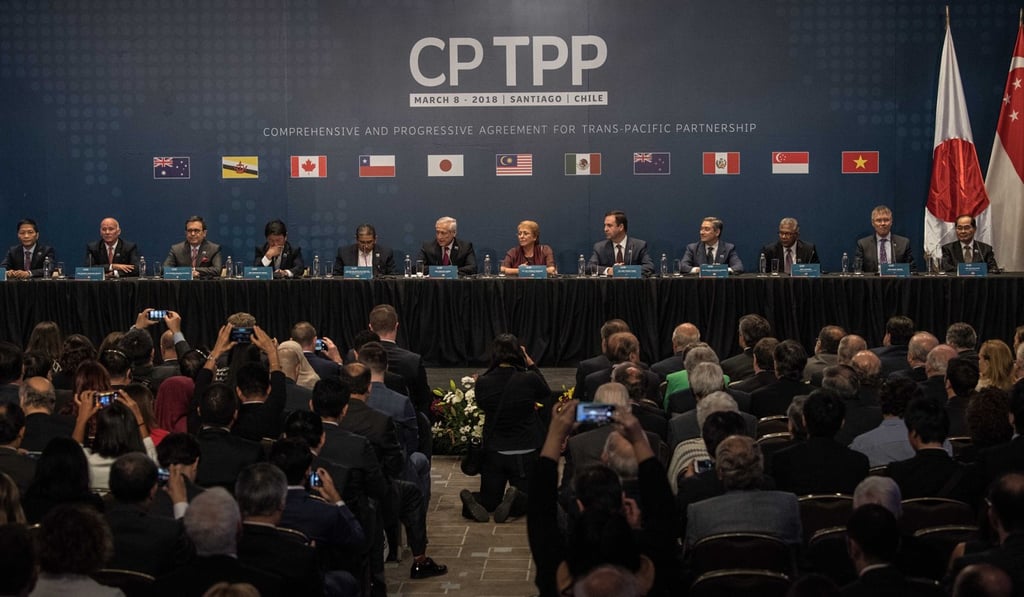Asian Angle | The CPTPP is looking like good news for East Asia – and it’s looking better to everyone else
- The larger the trade partnership gets, the better it is for its members and the more attractive it becomes for those left outside
- And in the same way it replaced the TPP, the most significant effect of the CPTPP could be to propel an even larger East Asian alternative that would ultimately supersede it

On the other hand, the tongue-twisting Comprehensive and Progressive Agreement for Trans-Pacific Partnership (CPTPP) may emerge as the good news story for East Asia – albeit a more low-key one. The larger it gets, the better it is for its members and the more attractive it becomes for those left outside.
The CPTPP is a new market reality for Japan, Canada, Australia, Mexico, Singapore and New Zealand – and will be for Vietnam from January 14. These seven economies, which account for more than 92 per cent of the total GDP of the 11 signatories, ratified the agreement in 2018. Malaysia, Chile, Peru and Brunei signed but did not ratify the agreement last year. The first three of those countries experienced disruptive changes of government in 2018; Brunei did not.
The CPTPP is the smaller, narrower replacement for the earlier Trans-Pacific Partnership (TPP) signed by the current 11 CPTPP economies and the United States in February 2016. In January 2017, President Donald Trump killed the TPP agreement by withdrawing the US from it.
In 2008, influential US farm lobbies supported George W. Bush’s administration joining the negotiations that led to the deal, and subsequently the Obama administration making those negotiations the economic pillar of its “Asia rebalance” strategy.

Vince Peterson, head of US Wheat Associates, warned of an “imminent collapse” of the largest wheat export market for US growers. Japan is the largest export market for US and Australian beef, and has agreed to major tariff cuts for beef imports.
